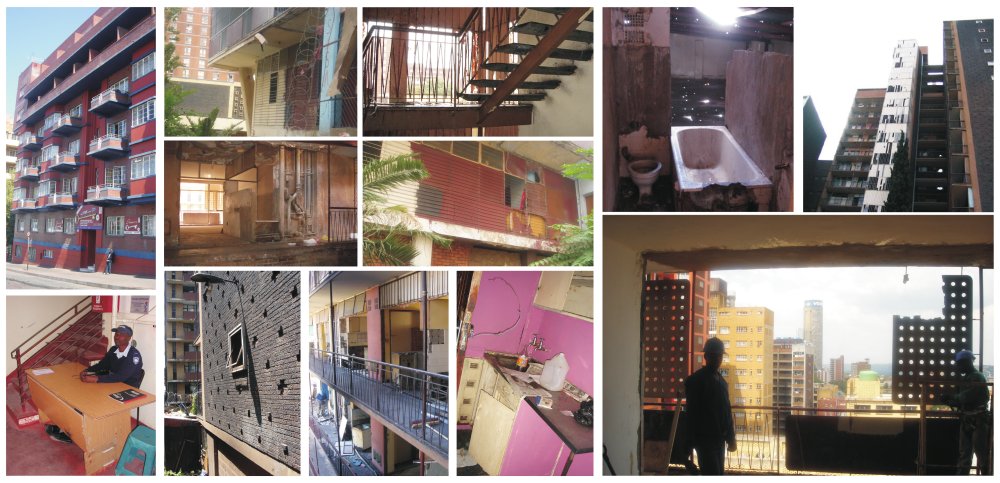You are here
Ekhaya Neighbourhood Project (Panel 2)
It's about people finding a home in the city, of accepting a place and thereby a reciprocal relationship with their environment for which they start to take responsibility. It is therefore this process which over a period of time starts to impact on the environment.
This is a collaborative project. Through an incremental process of community organising, making contact and
opening channels of communication, eKhaya established a Neighbourhood Association of property owners. This set up a forum for building managers, formed links with other local community organisations and built relationships with city councillors, departments, agencies and law enforcement authorities. It is the proud sense of co-operation, progress and achievement of this community network that drives eKhaya today. The property owners and voluntary involvement of building managers, staff of eKhaya Security & Cleaning Project and residents who give their time and support voluntarily to tackle specific neighbourhood issues. They also organise events that enhance the overall wellbeing of residents and workers that bring the community together.
Over the past four years, as more property owners have joined the eKhaya Neighbourhood Association, the
neighbourhood has been extended and impact of the eKhaya programme have grown. It now covers 16 city blocks, between Smit and Kapteijn Streets, Claim and Klein Streets, and incorporates additional clusters of adjacent residential buildings. By the end of 2008 membership had increased to 17 property owners/agents, with 33 participating buildings. eKhaya directly affects the lives of around 6 000 people living in these buildings, as well as others in the area.
There is increasing awareness by residents in non-member buildings and buildings beyond the neighbourhood of eKhaya Neighbourhood – where people are working 'To make Hillbrow Your Home'.
While it is focused within a defined neighbourhood, eKhaya also addresses the broader concern of sustainable socio-economic regeneration across the inner city. It is founded on the recognition that urban regeneration is not just about upgrading bad buildings and repairing built infrastructure. Nor is it just about good management and ongoing maintenance in buildings and in the public environment. There is growing understanding that genuine development is not an intervention, but a process, in which the positive interests of all involved are met. It is perhaps, most importantly, about building social cohesion and a sense of community, where all stakeholders recognise and assume their responsibilities, accept accountability and develop a shared trust and a shared commitment to their common interests.
One of the first initiatives was to clean up the existing sanitary lanes which were filthy, neglected and dangerous areas where no-one took responsibility for their upkeep. The first manifestations of the eKhaya project were not always focused on the physical environment, but slowly the process of building urban governance, has resulted in people driven changes to the environment, from the carving out of public space and play areas from the streets to the reclamation of urban open space.
Back to Panel 1
.
SAVAGE + DODD ARCHITECTS
